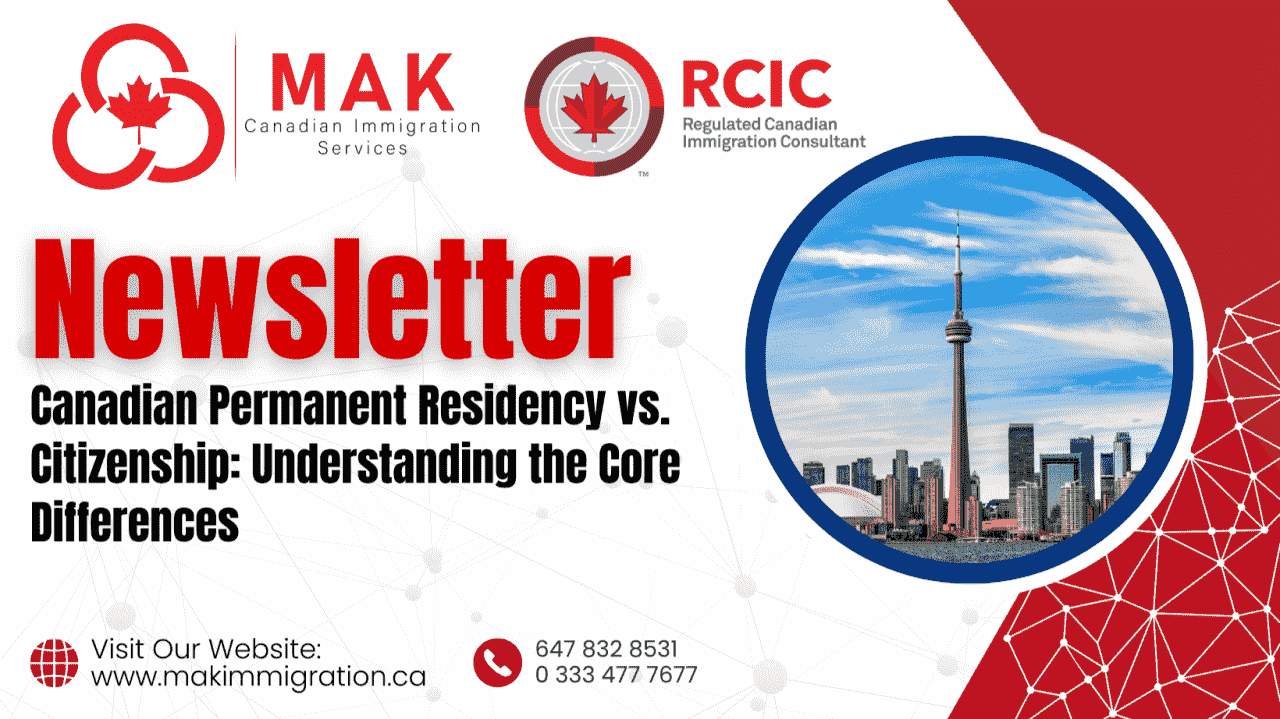Making the distinction between citizenship and permanent residency is essential when making long-term plans for Canada. Although people with both statuses are able to live, work, and study in Canada, the extent of their rights and obligations differs greatly.
Quick Overview of Status
Permanent Residency (PR):
A person who is not a citizen of Canada but has been granted permission to live there permanently, provided they fulfill specific standards, is known as a permanent resident. Although they have many rights, those with PRs do not enjoy all the advantages of full citizenship because their status is temporary.
Citizenship:
Canadians who fulfill PR requirements can become citizens by naturalization or by birth. You have additional privileges with this status, such as the ability to vote and relocate. This status also enhances your safety.
Political Rights and Responsibilities
Democratic involvement is a key difference. Citizens can vote and run for office in federal, provincial, and municipal elections. Permanent residents, regardless of how long they’ve lived in Canada, do not have voting rights or the ability to participate in political leadership roles.
Job Opportunities and Restrictions
While both citizens and permanent residents can work in Canada without needing additional permits, certain government or defense related positions that involve high-level security clearances are reserved exclusively for citizens.
Residency Obligations
To retain permanent residency status, the permanent resident must be in Canada for 730 days in every five years. These days don’t have to be consecutive, but failure to meet this requirement can result in the loss of PR status. Citizens, once granted that status, are free to live abroad without affecting their legal connection to Canada.
Travel and Global Mobility
Permanent residents travel on a Permanent Resident Card, which allows them to re-enter Canada and, at times, provides them with access to certain countries visa-free. However, it has quite a few limitations.
Citizens travel with some of the best passports in the world. The Canadian passport permits one to enter nearly 190 destinations without a visa or via on-arrival visas; also, citizens benefit from consular protection abroad, making global mobility much simpler.
Security of Status
While both statuses are legal and respected, citizenship offers a more permanent guarantee. Permanent residency can be revoked due to prolonged absences, criminal offenses, or misrepresentation. On the other hand, citizenship is rarely revoked, only in instances of fraud during the application process.
Passing on Status to Children
If a permanent resident gives birth in Canada, the child is immediately a citizen of Canada. PRs, on the other hand, can’t just give their position to children born outside of Canada. Such children must be supported for immigration, as long as they meet the requirements.
Most of the time, people can give their citizenship to children born outside of their country. But because of the current first-generation limit (FGL), only the first generation born outside of Canada can enter. The Canadian government is looking at this rule again, and possible changes could be made by December 19 that could make more people eligible in some situations.

Final Thoughts
Whether you’re already a permanent resident or exploring pathways to citizenship, understanding the legal, social, and practical differences between the two statuses is essential. Each offers valuable benefits, but citizenship carries greater security, broader rights, and fewer limitations, making it the natural next step for many who choose to build their future in Canada.

